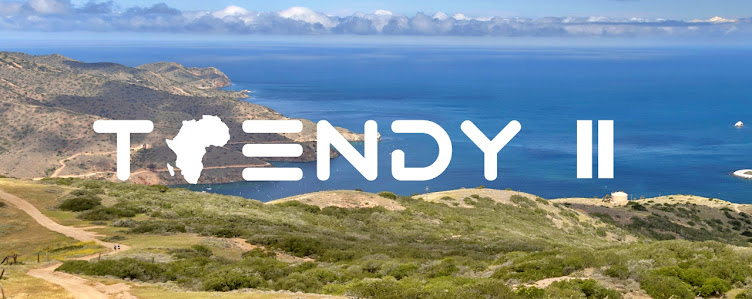When the Ghana shipped its first barrels of crude
oil in 2010, then-president John Atta Mills pledged to build new roads and a
deep-sea port, expand the power grid and create an aluminum industry.
Five years later and Ghana’s economy is sinking. The
government was forced to seek an emergency loan from the International Monetary
Fund of almost $1 billion, the currency was the worst performer in Africa
against the dollar in the first half of the year and power cuts of 24 hours at
a time are crippling businesses.
The promise of an oil windfall led Ghana on a
borrowing spree. Feted by donors for its stable democracy in a region known for
coups and civil conflict, the West African nation attracted investors hunting
for high yields. Spending controls weakened at the same time as gold and cocoa
prices fell. Soon Ghana went from being almost debt-free to being downgraded by
credit-rating companies.
“It’s clear that Ghana did fall prey to the oil
curse in the sense of the expectation that oil money was going to solve all its
problems,” Philippe de Pontet, Africa director at Eurasia Group, said from
Washington. “That had a perverse impact on government planning, spending and
behaviors.”
After posting the fastest economic growth in Africa
in 2011, Ghana’s expansion of 4 percent in 2014 was the slowest in 20 years.
This month it raised its 2015 deficit target to 7.3 percent of gross domestic
product to account for lower-than-expected revenue from oil.
Ghana is among producers from Iran to Russia to
Nigeria that are struggling with lower-than-expected crude revenue. They are
whipsawed by a global supply surplus that caused the price of Brent crude to
drop about 50 percent in the past year.
It’s a long way from 2007, when Ghana rode a wave of
optimism after London-based Tullow Oil Plc discovered a large offshore reserve.
The World Bank estimated in 2009 that the oil boom would boost government
revenue by a third and transform an economy that stood at $16 billion at the
time.
When Mills opened the first oil tap in December
2010, he pledged to avoid the mistakes of other African oil producers and save
revenue for future generations. The resource comes with “serious
responsibilities” and the government “must ensure oil is a blessing, is not a
curse,” he said.
Ghana began racking up foreign debt less than two
years after it was one of a group of highly indebted poor countries granted
large write-offs.
The government sold its first global bond of $750 million in
2007 and, following the oil discovery, received a $3 billion loan from China in
2011.
Authorities have sold $1 billion in Eurobonds in
each of the past two years and plan to auction at least another $1 billion this
year. The yield on the Ghana’s dollar debt maturing in 2023 is up 130 basis
points, or 1.3 percentage points, to 9.286 percent since it was sold in July
2013.
Public debt has almost doubled since 2007 to reach
68 percent of gross domestic product. The country may be headed for default in
the next few years, Bloomberg Intelligence’s Mark Bohlund wrote this week.
“Government has borrowed and borrowed,” said
Mohammed Amin Adam, head of the Accra-based African Center for Energy Policy.
“If you look at borrowing and spending behavior, it quickly reached
unsustainable debt levels on the back of oil expectations.” Part of that borrowing was used to pay higher wages
after Mills implemented a new salary structure for more than 600,000 civil
servants in 2010. The wage bill more than doubled to 5 billion cedis ($1.5
billion) in 2011 and increased by 47 percent the year after that. Mills died in office in 2012. He was replaced by
John Dramani Mahama, who has failed to stem debt levels or solve the energy
crisis.
His government has blamed falling commodity prices
for much of the crisis as it cut budgeted revenue, while pointing to oil prices
for the cedi’s decline. Two phone calls and a text message to the mobile phone
of Finance Minister Seth Terkper weren’t answered.
The IMF loan, agreed to in April, has provided the
government with some breathing space and given investors reason to come back as
authorities pledge to keep spending under control. The cedi has recouped all
its losses of the first half of the year. And it has gained 26 percent against
the dollar since June 29, when the IMF gave a positive assessment of Ghana’s
budget targets.
“With the IMF
coming in, the government is being more cautious in terms of borrowing,” said
Bernard Anaba, a policy analyst at the Integrated Social Development Centre, an
Accra-based research group. “I’m optimistic that the accumulation of debt will
slow down.”
The cedi has plunged 58 percent against the dollar
since the beginning of 2011, reaching a record low of 4.49 on June 29. Inflation
reached 17.1 percent in June. Santiago Cuneo, an economist at RVX Asset
Management based in Miami, said he had owned Ghanaian debt before but wouldn’t
jump at it now.
“Since the IMF deal, there has been some improvement
in the numbers but I’m afraid we’re going to see a weakening cedi,” he said.
“Even if there’s progress on the fiscal side, the price of oil and the falling
commodity prices are not going to help.
Source: BloombergBusiness









